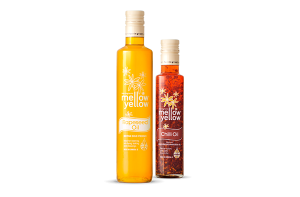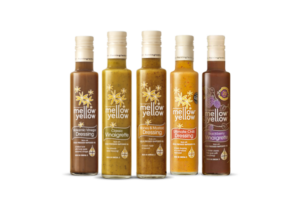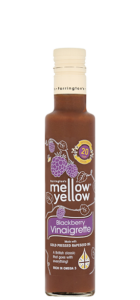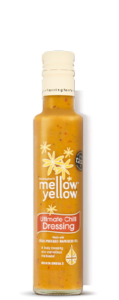As September draws to a close, we are in the final stages of the busy workload. Harvest seems a distant memory, the rapeseed is all planted and growing well, although a little rain wouldn’t go a miss; now it is just the wheat that needs planting. So the question is to plant wheat or not to plant wheat?
Like many of the jobs on an arable farm, I don’t have the luxury of a crystal ball to see what the weather is going to do over the next few weeks. September has to date been the driest on record. The lack of rain has not allowed much blackgrass and other weed seeds to germinate and grow, which ideally I would like to have a chance to kill off with a weed killer before we start planting wheat. If we drill too early, these weed seeds will germinate at the same time as the crop and cause problems for the next season. If we wait too long and the weather breaks, we may struggle to get the crops into good soil conditions, or at all. The plan is to encourage the weeds to grow quickly by giving the soil a gentle rake, kill off the weeds before planting some fields whilst the conditions are favourable, then wait as long as I dare before planting the remainder. In other words, I’m hedging my bets in trying to make the right decision.
I read recently that Richard Branson has given up eating beef because of his concerns over greenhouse gas emissions produced by cattle. He is, of course, correct – cows produce methane (from flatulence), however, Mr. Branson’s concerns are more about intensively produced beef in South America where cattle are raised in feed lots consuming huge resources to produce beef for North America. It is a completely different story in Britain and other similar countries, where beef is reared less intensively. Whilst it is true cows do flatualte because they are ruminant animals, meaning they eat grass, something we humans are not able to do. If we all stopped eating beef, what would happen to our green and pleasant land? Perhaps we could plough it all up to grow more crops to feed a vegetarian world, but there again that would cause other environmental issues, including the emission of greenhouse gases.
Sometimes, out of good intensions and trying to make the right decision, people can get a little side tracked without seeing the bigger picture. Besides, did I mention that air travel is a huge cause of greenhouse gas emissions? What would Mr. Branson say about that?
Over the years I have had bird surveys carried out on the farm. Primarily because I find this sort of thing interesting and whilst I am no bird expert (although I have learned a lot in the last few years), I do like to know what we have and what we can do to improve the likely hood of getting more species on the farm. Local conservation expert, Dr. Mark Avery has been surveying the birds at Bottom Farm since 2003. Back then he got very excited when he found Turtle Doves on the farm, which came back each year to nest. Unfortunately, in recent years he thought they had disappeared, which is the case in much of the UK. However, I was delighted recently when I thought I had spotted them here again, the turtle doves return. An excited call to Mark, who came out and confirmed, even more excitedly, that I was right! They’re back. This is great news, especially so as it was waste seeds I scatter around the farm from Farrington Oils, that they were feeding on.
Mark has just launched a new book, ‘A Message from Martha’, which talks about the sad demise of the last carrier pigeon in America, 100 years ago and the social history around the subject. It also draws parallels with the plight of the Turtle Dove today in the UK, mentioning our farm as part of the message. I haven’t read the copy kindly given to me yet, due to harvest keeping me busy at the moment, but am looking forward to soon. Until then it looks great on the coffee table, with the cover designed by local artist, Carry Akroyd.
Harvest is in full swing, with the rapeseed nearly gathered in, giving very pleasing results following a near perfect growing season. Marvin is taking over from Father as the main combine driver this year, for which he has some big boots to fill. After over forty years experience driving combine harvesters, there is not much my Father doesn’t know and to let a new man lose on our beloved machine can’t be easy, however, Father seems reasonably relaxed, showing Marvin the finer points to help make him into an experienced operator in time.
Once we have finished the rapeseed, there will be a few days catching up on other jobs around the farm in readiness for the main wheat harvest to start in August. This is when the real fun starts and it all gets a bit hectic, so preparation is key.
Farming Diary
From LEAF Demonstration Farmer Duncan Farrington
I love this time of year when Spring has sprung, nature starts to wake up; blossom and leaves start appearing on trees and hedges, birds sing, the countryside has a lovely fresh smell and everything starts feeling a little more pleasant. At last we are able to get on with some real farm work as it is full steam ahead with spring work. We have started planting our spring crops, with the beans going in. The rapeseed is really growing quickly now as weather warms and days lengthen; it is literally growing in front of my eyes, as last week alone it doubled in height.
Marvin, our latest recruit on the farm is finding his feet quickly as I throw him in at the deep end. Currently he is putting fertiliser on the rapeseed to ensure it has a nutritious diet to maintain its strong growth. Fertiliser is food for plants. Like us, all plants require food, with a balanced diet being vital to healthy living. We give the crops a mixed diet of nutrition to include Nitrogen, which forms the building blocks of protein; Sulphur to help make healthy oil; Manganese to help the chlorophyll work efficiently and so on.
Much of a plant’s need is gained from what is in the soil. We analyse what the soil has and balance this with the extra parts the crop needs. Over time I need to ensure I am not mining the soil, but putting back what the crop takes out, as well as looking after all the bacteria and organic matter that work in symbiosis with the plants to create a healthy and sustainable system. As gardeners know, it’s all part of a great big jigsaw puzzle trying to get the balance right.
Looking ahead to June 8th, we are starting preparations for Open Farm Sunday, in which around 400 farms nationwide open their gates to welcome the public and show what we get up to in growing food for the nation. It is an event I thoroughly enjoy organising, with the help of our neighbours. We try to put on a great free family day out here at Bottom Farm, with farm walks, farm machinery, livestock, local food to try and so on. If you are interested please look at the website for more information www.farmsunday.org
Last month I predicted that by now I would have planted our spring beans, however, the stormy waters has so far not allowed that, although conditions are improving and I hope we can be doing something in the next couple of weeks.
Those who have read my column for some time will know I do mention the weather occasionally. Recently it has been making the national headlines. We had a few trees blow down, including one which blocked the road for a couple of hours before we cleared it up. However, this is nothing compared to what many around the country have suffered. Farmers on the Somerset Levels have suffered a second year of potentially livelihood ruining conditions.
I visited farmers on the Levels last year, remembering one farmer; an award winning, forward thinking person, with a fantastic business he has built up with his family and staff over the years. Most of his pasture was under water for 11½ months of the year. This nearly sent his business to the wall, but thanks to determination and a close relationship with his bank, they had worked out a way for him to pull through it. That was last year, but now I think of him as it has all happened again.
Somerset farmers know the levels flood; they have done since Roman times. Up until 1990, local rivers were dredged to manage the winter flooding. However with authorities like the Environment Agency now run by Westminster intelligentsia, priorities had changed and despite local knowledge and opposition, the powers from afar have not carried out this vital management in recent years, which has lead to the inevitable consequences in the last two years. Fortunately, with the political outfall, it looks like things may change from now on, as organisations will have to answer some big questions on the balance of priorities.
In the mean time, there has been a surge of support for the flooded farmers. Farmers around the country have organised much-needed food and bedding for stranded livestock, whilst the generosity of the wider British population has been overwhelming. In rural and urban areas alike, neighbours have been helping each other when homes have been deluged with flood waters. Often such devastating events bring out the best in people.
This month I have been working with Winter projects and have been building a Bio-bed. A what? I hear you ask. A bio-bed is the latest thinking on creating an ideal area to wash out agricultural crop sprayers. We use our crop sprayer to apply pesticides and fertilisers to the crops throughout the year to help them grow and to keep them in tip top condition. Pesticides are often a potential area of controversy from some quarters, however, just like modern medicine, they are an important and necessary part of growing food. As you would visit your doctor for an aliment, being prescribed a particular medicine to be taken as directed to help you recover. This is exactly the same with our crops. We take expert advice on what remedies to use and apply them skilfully, with the best equipment and trained people.
Getting back to our bio-bed, it is a specifically designed area to wash our crop sprayer on. Capturing any pesticide residue so it can ‘bio-degrade’ naturally, rather than risk it getting into watercourses. The bio-bed is basically a large lined pond, filled with a mix of straw, compost, and soil. The bio mix allows bugs and bacteria to break down pesticides, thus cleaning the water before it is safely trickle irrigated back onto the land. As our farmyard is surrounded by a brook, I am conscious that pollution risk is an issue and I am excited to see how this new system will work.
I have enjoyed this project as it allowed me to get out of the office and get my hands dirty, literally. As often is the case with such projects, we chose rather wet conditions, and after a couple of days with a digger, created a muddy mess. The bio-bed may be nearly finished, but it will be several weeks before we fully clean up the mess we have created around it.
Next on the agenda, once the weather starts to improve for the spring, will be the planting of our spring crops. Firstly the beans, followed by barley. With this, there is no fixed date as one has to be patient. It is crucial to plant when nature is ready and the conditions are right. However, by next month I will hopefully have a progress report that at least something has been done.
I have been refreshing my knowledge on how to manage our soils in our growing business. Soil is my pet area of interest, as ultimately everything we eat, whether this is meat, milk or vegetables comes from the soil it was grown in. Looking after soils both nutritionally and physically will ultimately look after us, to this end we have not ploughed on our farm since 1998. Ploughing is the traditional way farmers have prepared ground to plant crops for thousands of years. It has many benefits, which up until the last hundred years was mainly carried out behind a horse. However with the advent of the tractor, bigger and heavier machines have been used, which has bought some disadvantages from a soil health perspective.
At Bottom Farm, we talk terms such as ‘Minimum Tillage’ or ‘Direct Drilling.’ We use ‘Cover Crops’ and various other techniques, all of which have bought huge, measurable benefits to our soil health in increased organic matter and improved nutrition. However as our soils have improved, my knowledge has not kept up with the latest advances, so it has been really refreshing to learn more on the better use of cover cropping, crop rotations and improvements in how to establish crops. Some may say it is a dull subject and if you were to accuse me of being a soil nerd, I am happy to go along with that.
Agriculture and farming offer very interesting careers, not often considered by those from outside the industry. It is at the cutting edge of technology, for example I have just learnt about the use of LED lighting to grow British Strawberries throughout the year, or in my case understanding the biology involved in creating healthy soils. However it is also about an appreciation of the natural world we work within, the weather, wildlife, animals and living plants.
Agriculture is a growing industry, needing to recruit around 60,000 people by 2020. There are jobs for all sorts of careers from animal husbandry, engineers, biologists, financial and commodity trading and so on. I am just looking at recruiting one person this year, perhaps someone who is willing to share some of my passion about looking at the very ground beneath our feet.
As a rule of thumb, we usually start harvesting around 27th July. However in reality along with good farming tradition, it comes down to friendly brinkmanship, where neighbours pretend to be calm and patient, The Calm Before the Storm waiting until the crops are in perfect condition to harvest, before someone breaks ranks and you hear the sound of a combine entering a field somewhere over the horizon. All thoughts of planned calmness are forgotten immediately as you run to get your combine out of the shed in an attempt not to be seen as being behind the neighbours. It’s a completely futile competition as in reality the crops will be ready in their own time, and this initial excitement to get started normally finishes a few metres into the field with the realisation that the crop is not ready, and we have to go back to patiently wait a few more days.,
This year, however, things will be a little different. Harvest is not likely to start for us until around the second week in August. I know we will be incredibly twitchy by then, especially if we hear a nearby combine going somewhere. Due to the long winter and late cold spring, everything is simply behind by around three to four weeks. Once we do start we will not know which way to turn first as no doubt the rapeseed, winter wheat and spring barley will all be ready together. I can certainly see a few weeks of excited panic and long hours. It will be a case of “Don’t panic Mr Mannering.”
Preparation for harvest continues. I have taken on our harvest student, who this year comes all the way from the Scilly Isles. He applied for the role following a visit by Duchy College in Cornwall to the farm learning about what we get up to here. Jonathan is from a family farm on St Marys. Whilst their farm is only 10% the size of our farm in Northamptonshire, it very much promotes the adage of “It’s not the size that matters, but what you do with it that counts”. On Jonathan’s family farm of around 70 acres which is managed by his Grandfather, Father and Mother; they have beef cattle, grow several different types of foder crops to feed the cattle, grow new potatoes, grow narcissus, have three campsites, as well as his Father managing the island’s ferry terminal. It certainly sounds very different to how we do things here, which we can both learn from each other about the great diversity in British agriculture.
Currently, we are in the final stages of preparing all the machinery and grain store for harvest. The yard has been swept. Grain trailers have had a full clean down and service, with all the wheel bearings and brakes serviced. The combine is ready to go, with no obvious signs of mice damage at the moment – fingers crossed. The tractors have been washed and serviced and we are nearly there. We are going around some of the fields mowing the wildlife strips to encourage the right types of grasses and wildflowers to grow, as well as giving the footpaths and bridleways a cut. Additionally, we are walking through the spring barley in the early mornings before the sun gets too hot to rogue out (pull out by hand) any wild oats and wheat plants that will contaminate the crop which is destined for seed.
Next, it is just that patient waiting game. We are not good at it and no doubt this year there will be plenty of relieved farmers’ wives, once they have got us out from under their feet doing something useful.
Farming Diary
From LEAF Demonstration Farmer Duncan Farrington
July is upon us and I am starting to look forward to harvest which normally arrives around 25th of the month, but will be delayed this year thanks to the delayed spring which has slowed everything up. I think the combine will not start rolling on our farm until at least the first week of August, and when we do start I imagine we are going to have a mixed bag both on crop yields and quality. Overall though it is not going to be anything special this year, so I just hope we have some lovely weather to at least get a good farmer’s tan for the efforts.
Normally we grow three crops on the farm in a crop rotation, ensuring the fields and soil experience different crops each year, as part of a healthy and sustainable farming system. These crops would be winter wheat, winter rapeseed, and spring beans. However this year our rotation is somewhat different to the original plan.
Crops this year comprise of winter wheat, spring wheat, winter rapeseed, spring beans, spring barley and fallow land. Looking around the farm at the moment there is certainly a patchwork feel to the fields, some with good crops, especially the spring barley. Barley is something we have not grown since I was a child, so I do not have much actual experience of it, however at the moment the ears are just emerging which gives the crop a lovely soft hairy look as the crop gently sways in the breeze. ‘Ears’ is the term used for the seed heads on the crop which are the last part of the plant to develop, with the next few weeks being a crucial time to have plenty of sunshine allowing the plant to photosynthesize, to grow bold healthy grains of seed. Combine this with the occasional warm rain and it is looking very promising for the barley. The spring wheat looks equally as promising, whereas the winter wheat and rapeseed vary from good to bad, to downright ugly. At their worse there is either no crop in large parts of the fields or in the case of the wheat, the crop is very thin whilst the weeds are very thick. In these areas, we have resorted to the desperate measure of destroying the crop rather than trying to harvest rubbish.
Last month I had a BBC film crew to the farm again. This time they came with the food writer Nigel Slater, as they are currently filming for a new BBC 1 looking at what different foods we produce in Britain. Also, how farmers grow the raw ingredients, how they are made into finished foods we buy and, no doubt, will end up with Nigel creating something delicious in his kitchen. We had a great day looking at the story behind what goes into making our rapeseed oil, I will keep you posted later in the year if we hear of any dates for airing.
I have now found what I hope to be a great harvest student. We had several applicants for prospective tractor drivers over the busy summer period, all from different parts of the country. I have taken on a young lad from the Scilly Isles, from a farming family who is keen to gain experience in different types of farming. I think farming wheat and rapeseed in Northamptonshire is going to be very different from narcissus and new potatoes in the Scillys. Having met and spoken with him, I am sure he will be up to the challenge and I very much look forward to him joining us in the middle of July.
Farming Diary
From LEAF Demonstration Farmer Duncan Farrington
We are immensly proud that our entire range of Farrington’s MELLOW YELLOW cold press rapeseed oil, dressings and mayonnaise has been approved by the Vegetarian Society. Sharing an ethos of tracability, quality ingredients and no-nonsense food production makes our range a great choice for customers who wish to make informed choices about the food they eat.
Dr Mark Avery, our straight-talking RSPB blogger has stood down from his position as Conservation Director after 13 years to go freelance. Mark, a scientist by training and a naturalist by nature has been visiting Duncan at Bottom Farm for a few years now, bouncing ideas and helping with advice on making life a little better for our feathered friends. If you have enjoyed following Mark’s blogs as we have done, you can read about his latest visit to Bottom Farm on his new blog, it is well worth a visit for views of birds, farming and more.

 Oils
Oils Rapeseed Oil
Rapeseed Oil Chili Oil
Chili Oil Dressings
Dressings Blackberry Vinaigrette
Blackberry Vinaigrette Classic Vinaigrette
Classic Vinaigrette Balsamic Dressing
Balsamic Dressing Honey & Mustard
Honey & Mustard Ultimate Chilli Dressing
Ultimate Chilli Dressing